Transition for Sustainability
TWC Sustainable Development
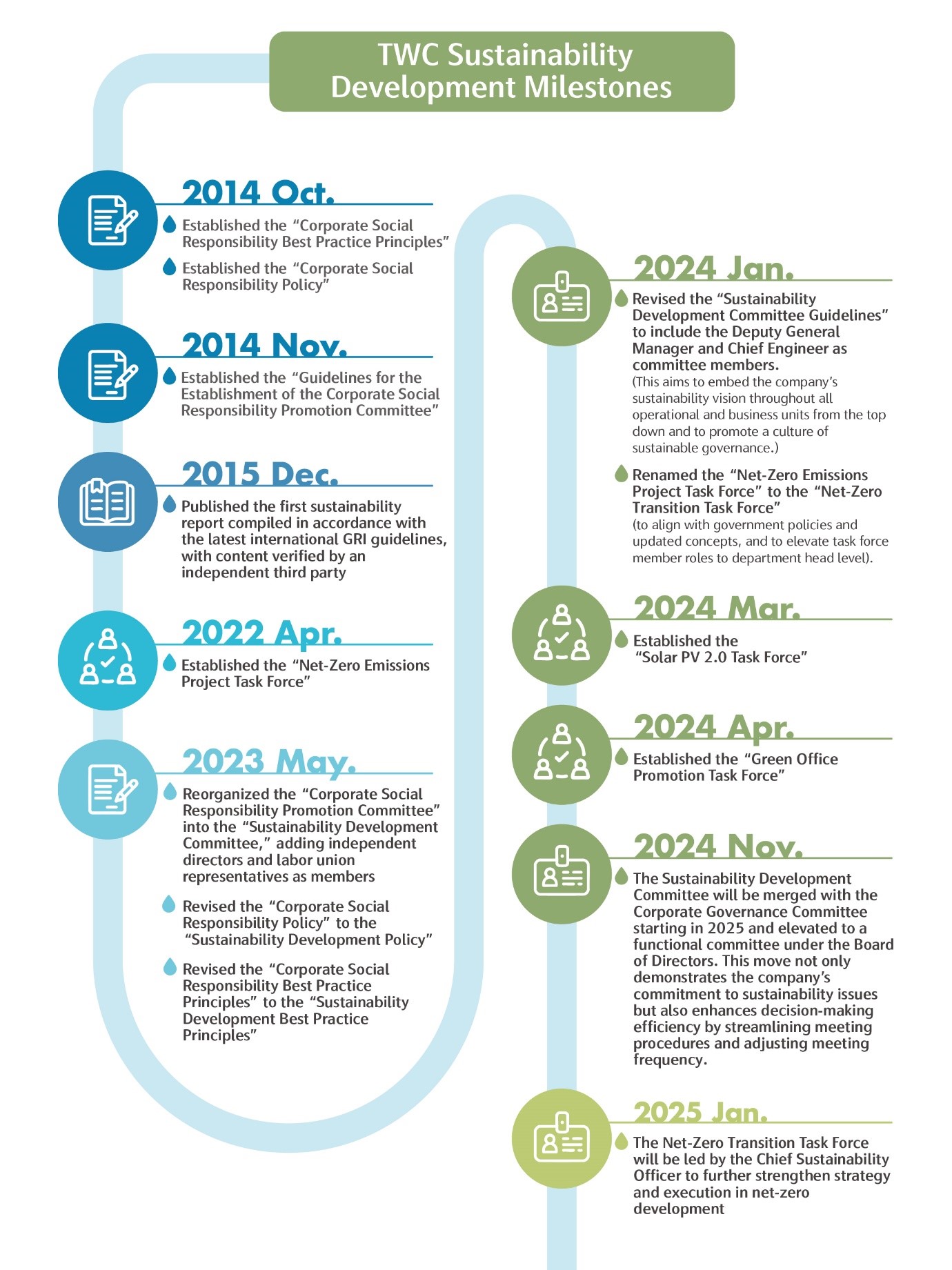 TWC Sustainability Development Milestones
TWC Sustainability Development Milestones
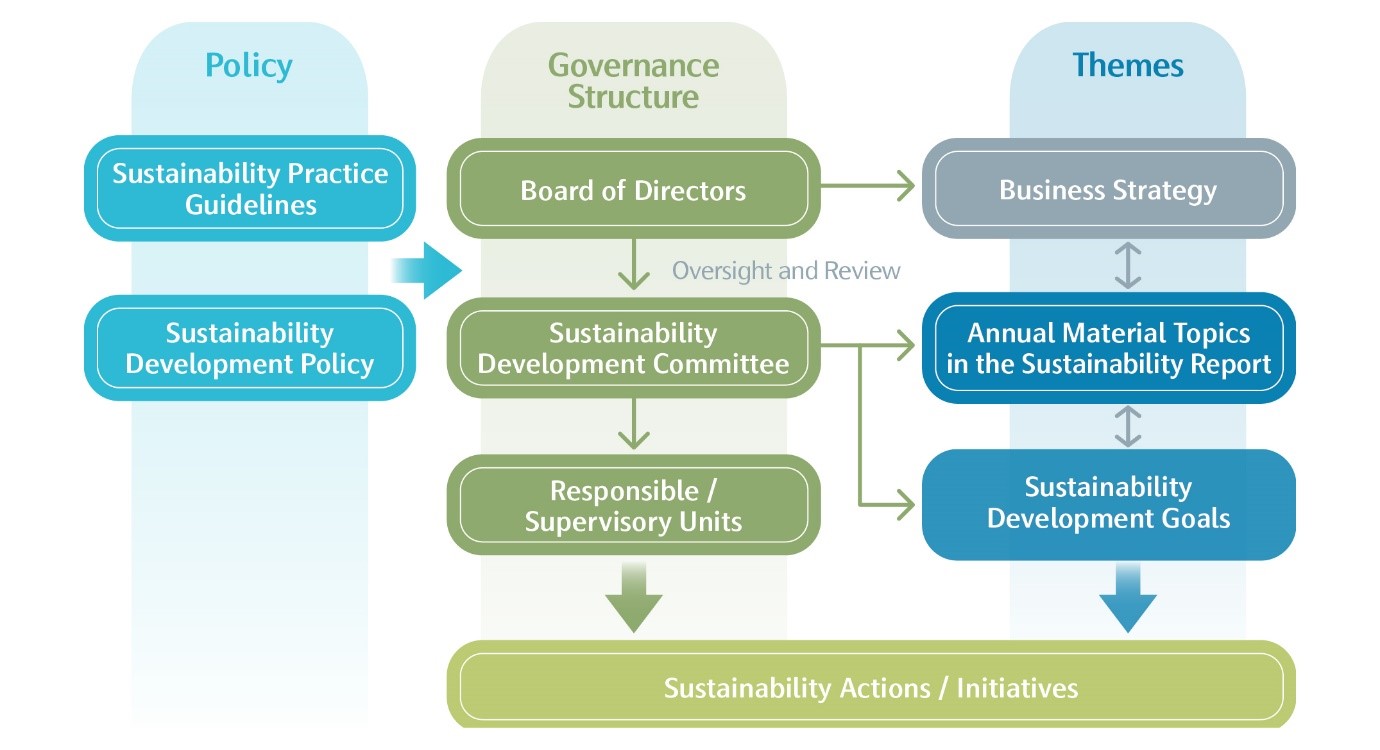 TWC Sustainability Governance Structure
TWC Sustainability Governance Structure
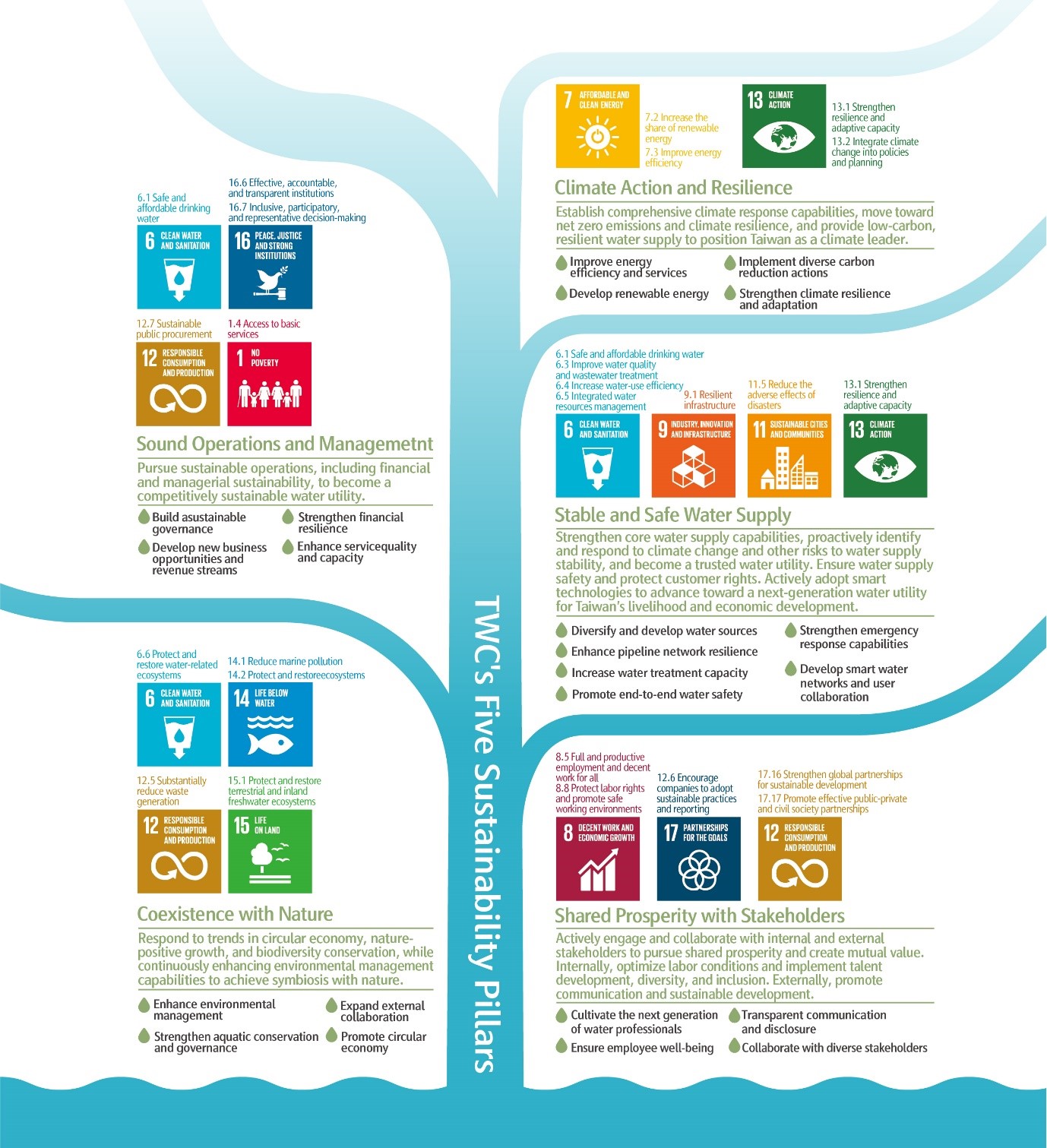 TWC’s Five Sustainability Pillars and SDG Alignment
TWC’s Five Sustainability Pillars and SDG Alignment
Net-Zero Governance and Climate Risk
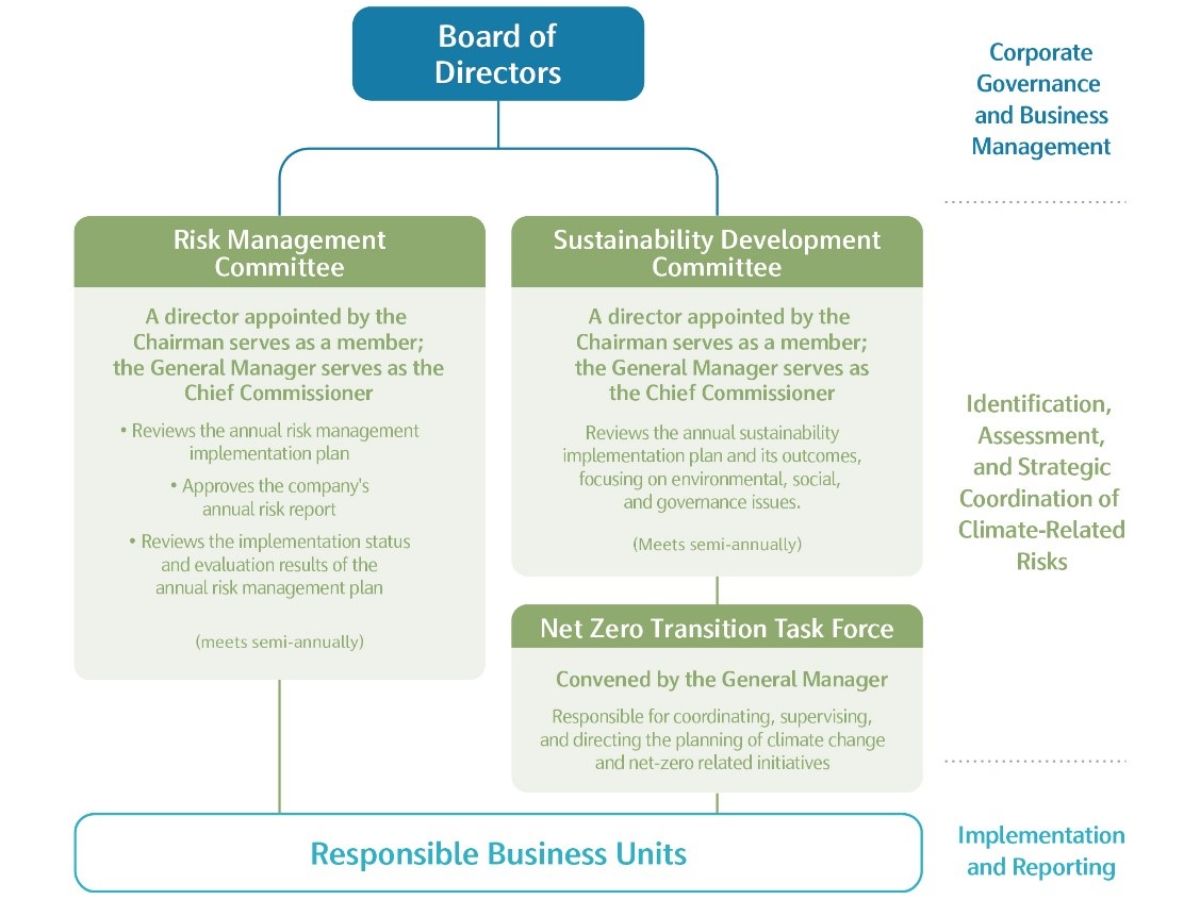 TWC’s Climate Governance Structure.jpg
TWC’s Climate Governance Structure.jpg
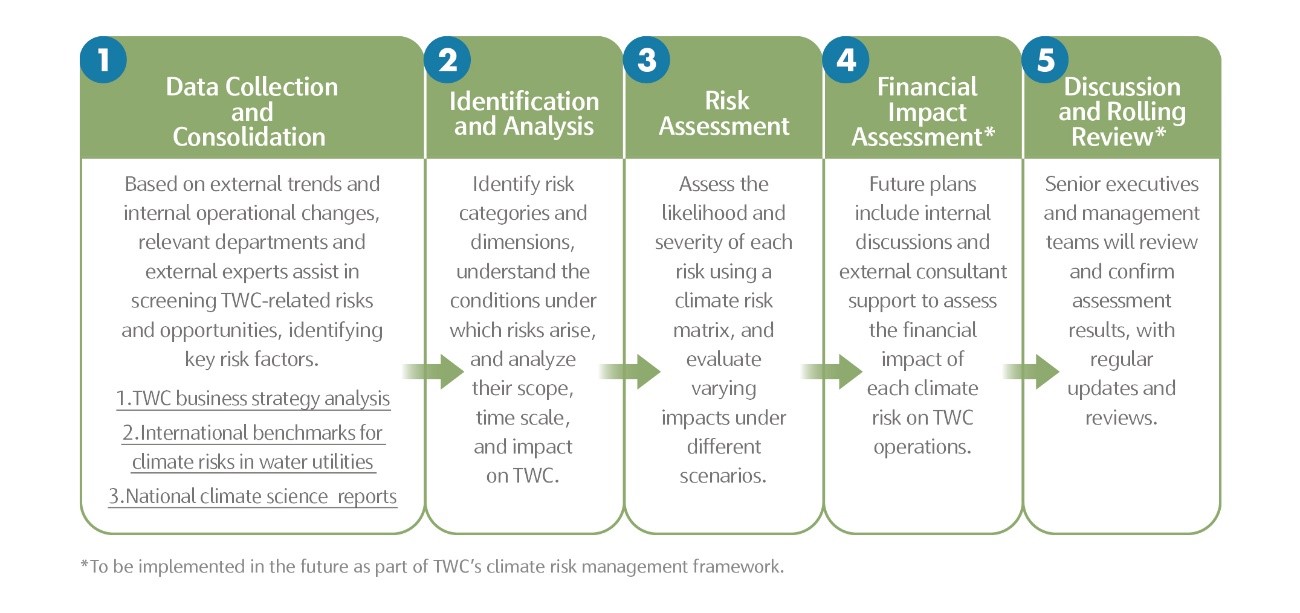 Climate Risk Identification Process.jpg
Climate Risk Identification Process.jpg
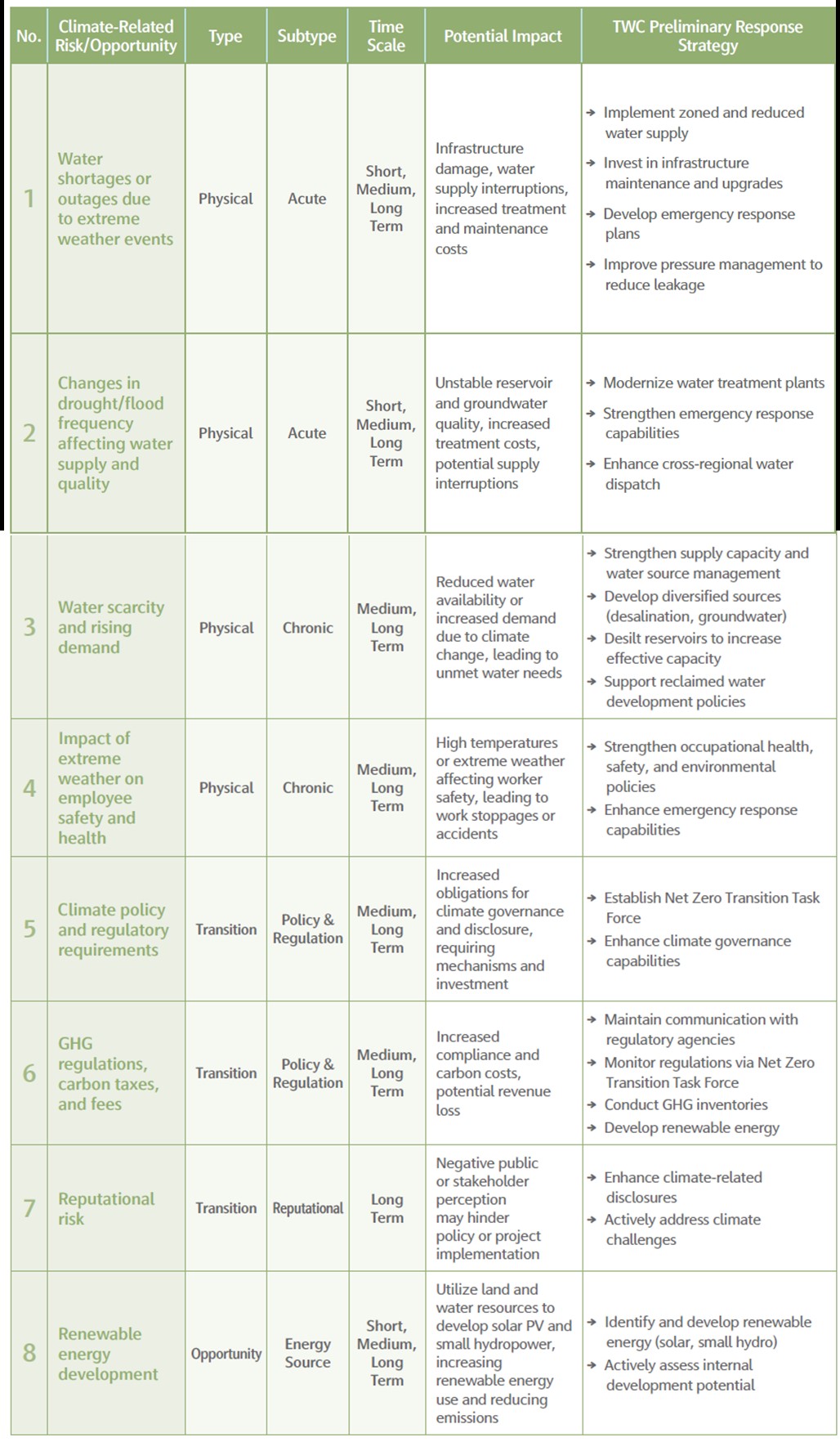 TWC Climate Risk Identification Results.jpg
TWC Climate Risk Identification Results.jpg
Nature Risks and Positive Action
Nature-Related Operational Scope
TWC’s water supply operations begin at the raw water source, which include reservoirs and storage facilities managed by TWC, the Taipei Water Department, the Irrigation Agency, and various regional Water Resources Bureaus. Raw water is extracted through TWC’s intake structures or pumping stations and conveyed via transmission infrastructure to TWC’s water treatment facilities for processing. Once treated, clean water is delivered through distribution infrastructure to municipal and industrial distribution reservoirs, where it is made available for end users. TWC’s operational scope encompasses not only administrative units such as the Headquarters, Branches, and Engineering Offices, but also includes physical infrastructure such as reservoirs, intake facilities, transmission pipelines, water treatment facilities, and distribution networks. TWC’s operations include both administrative units and physical infrastructure. The nature-related impacts of these components are summarized in the table below. Based on the principle of materiality, this report focuses its analysis on reservoirs under TWC’s jurisdiction and water treatment facilities with a daily output capacity of 200,000 cubic meters (CMD) or mor e. The locations included in this nature-related risk assessment are detailed below.
TWC’s water supply operations begin at the raw water source, which include reservoirs and storage facilities managed by TWC, the Taipei Water Department, the Irrigation Agency, and various regional Water Resources Bureaus. Raw water is extracted through TWC’s intake structures or pumping stations and conveyed via transmission infrastructure to TWC’s water treatment facilities for processing. Once treated, clean water is delivered through distribution infrastructure to municipal and industrial distribution reservoirs, where it is made available for end users. TWC’s operational scope encompasses not only administrative units such as the Headquarters, Branches, and Engineering Offices, but also includes physical infrastructure such as reservoirs, intake facilities, transmission pipelines, water treatment facilities, and distribution networks. TWC’s operations include both administrative units and physical infrastructure. The nature-related impacts of these components are summarized in the table below. Based on the principle of materiality, this report focuses its analysis on reservoirs under TWC’s jurisdiction and water treatment facilities with a daily output capacity of 200,000 cubic meters (CMD) or mor e. The locations included in this nature-related risk assessment are detailed below.
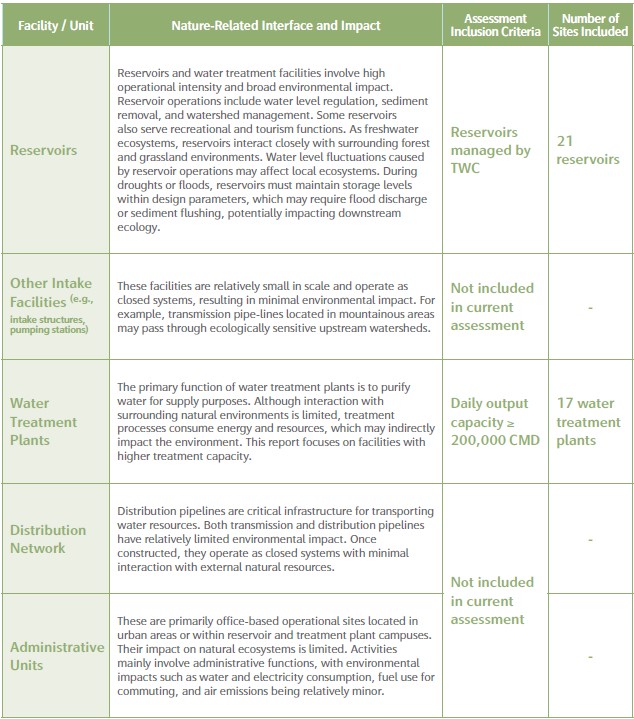 Locations Included in the Nature-Related Risk Assessment.jpg
Locations Included in the Nature-Related Risk Assessment.jpg
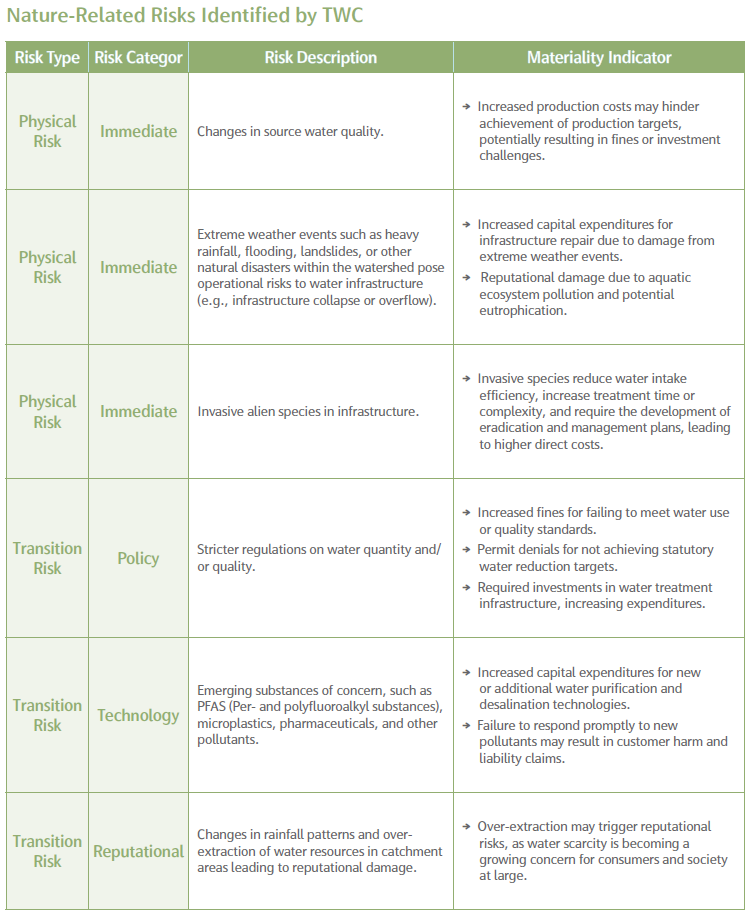 Nature-Related Risks Identified by TWC.png
Nature-Related Risks Identified by TWC.png


